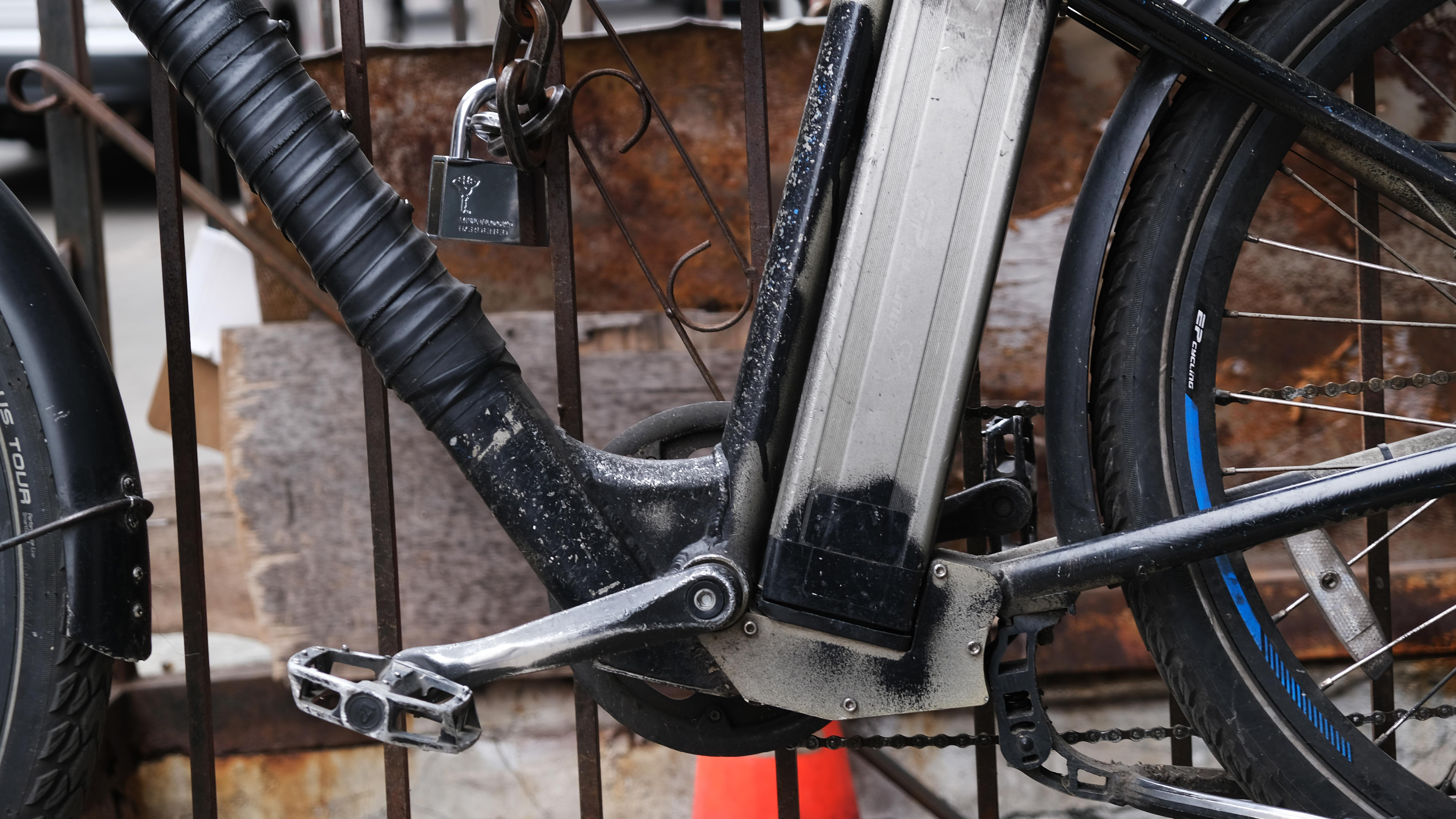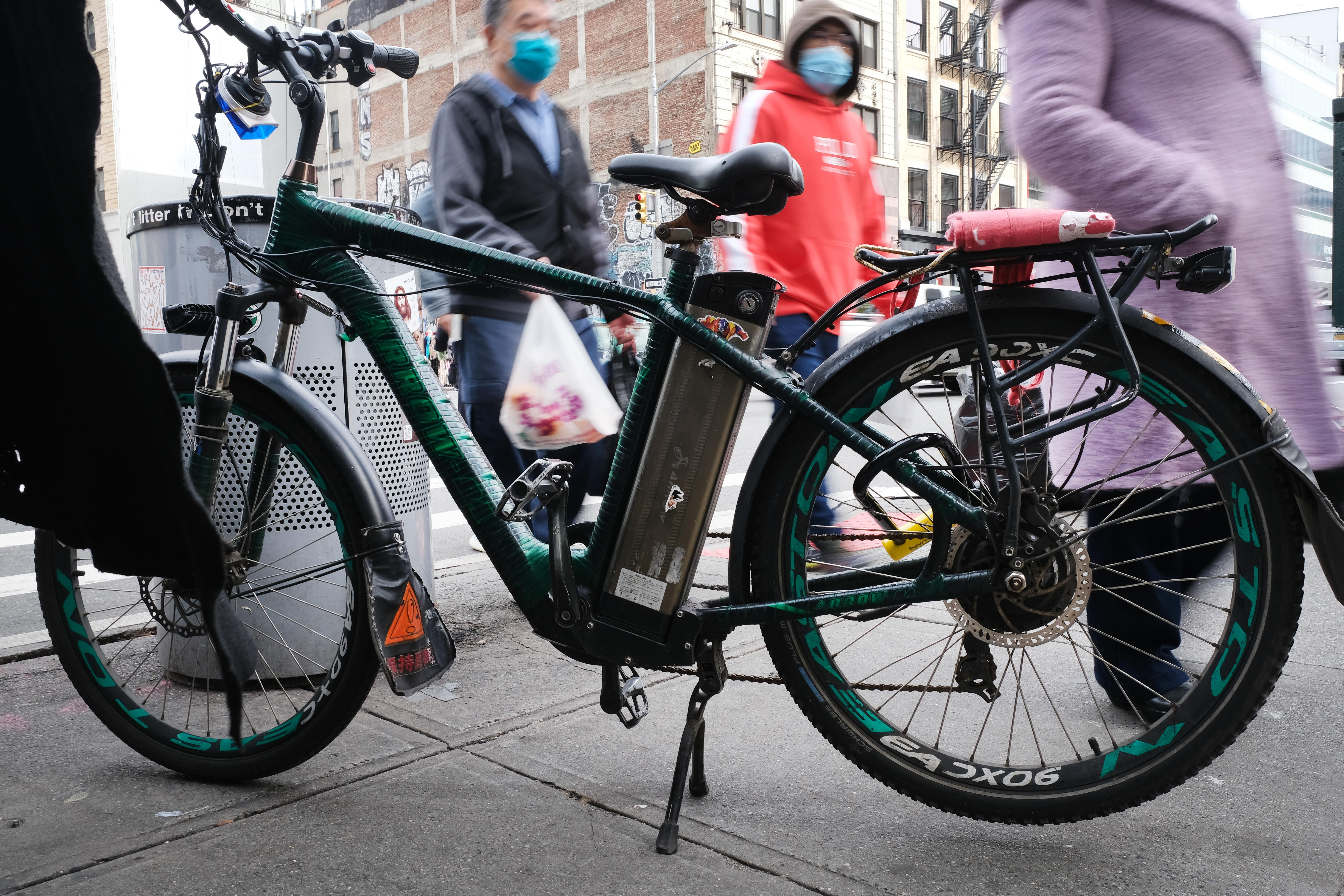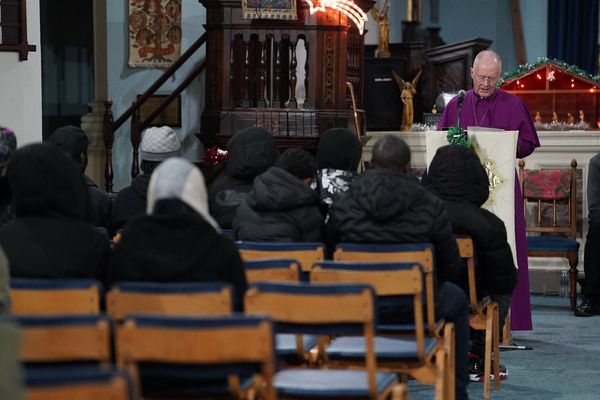
They are a staple of nearly every major city, primarily used by food couriers: The homemade ebike, often converted at home without expert supervision, is quickly becoming a problem for fire departments. Today, the BBC reported a call to action from the National Fire Chief’s Council following a series of house fires caused by lithium-ion batteries catching alight.
The latest high-profile fire occurred in Bristol, UK, at the end of September, and saw Jabar Oryakhe, 30, sadly die after falling from the 16th floor of a tower block while trying to escape the blaze. According to research published on Gov.uk in August, this is one of 235 fires in the last two years reportedly caused by ebikes, just under half of which were due to homemade setups. A total of 11 deaths in 2023 were reportedly caused by ebike fires.
The National Fire Chief’s Council says it wants “enhanced product safety rules” on ebike conversion kits, as well as greater regulation of the sale of the kits. Bristol City Council, following the fire, is quoted as saying:
“Evidence continues to emerge which does raise concerns about the risk posed by lithium-ion batteries. If items are found not being stored or charged safely in communal areas, we will consider removing them from council houses.”
This latest tragedy is perhaps a final reason that saw online auction giant eBay ban the private sale of ebikes on its site, citing fire risks. Reputable businesses will still be allowed to sell them, however.

Homemade ebikes are often a lot cheaper than standalone ebikes, constructed using cheap bikes and similarly cheap motors and batteries. The main cause of fires appears to be a mismatch of charger and battery, according to the charity Electrical Safety First. Guiseppe Capanna, a product safety engineer for the charity outlines the problem with missing or mismatched parts:
"They might include the motor, and the controller, but won’t always include the two most important bits – the battery and charger. That leaves it to consumers to work out which products they need to make it safe - quite often they get it wrong. You have a high risk that a charger won’t be compatible with the battery. The battery could then become over-charged - that’s one of the things that can cause it to go into thermal runaway, which causes it to catch fire and explode.”
It does seem that the issue isn’t one of ignorance of the risks, but rather cycle couriers accepting the danger as an unfortunate necessity. One anonymous messenger said:
“You need an e-bike when you work full-time as a rider because you can’t push it all day – especially up hills. I am aware they can catch on fire, so you have to take care. I dismount the battery from the bike and charge it outside of the house, often in a garage. It’s very dangerous. It could set fire to the house and hurt people, so I am careful.”
Are all ebikes dangerous?
No. While there are calls for third-party certification to bring ebikes into the same category as fireworks, there isn’t a cause for alarm if you own, or are thinking of purchasing an ebike from a reputable manufacturer. We have a list of the best electric bikes on the market, and also a list of the best electric bike conversion kits, all of which are also safe when installed and used correctly, and used with an appropriate charger.
Cycling UK’s Sarah McMonagle reassures the public: “Like traditional pedal cycles, e-cycles boost physical and mental health, improve air quality, and reduce carbon emissions. They’re a great option for people who cycle in a hilly area, experience mobility challenges, carry children or shopping, or simply don’t want to get sweaty on their commute. When purchased from reputable manufacturers, e-cycles are very safe."
There is much to be done in terms of education. In order to tackle this, in the UK at least, the UK cross-industry e-bike positive campaign from the Electric Bike Alliance has been launched to spread the word not only on the health benefits of electric bikes, but also to raise awareness of the potential safety issues at play in the market.







